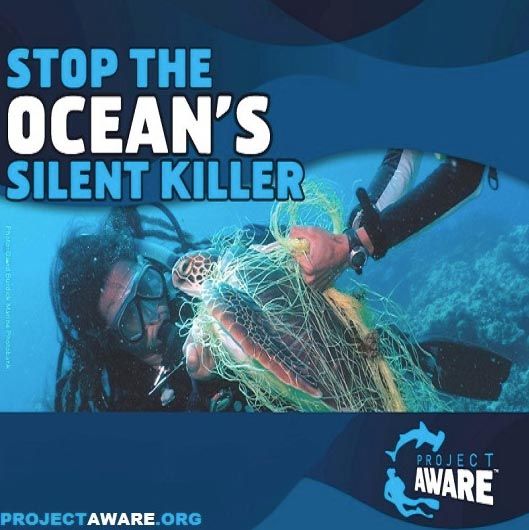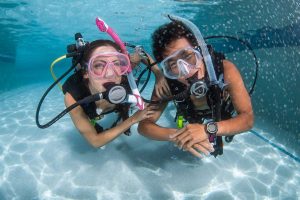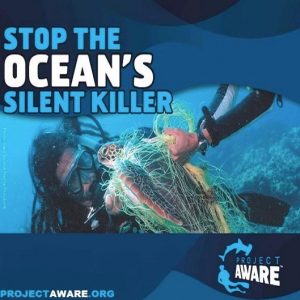All divers love the ocean and to want to protect it. That’s why a lot of us pick up the trash that we see during our dives. Some divers also report the trash that they find.
If you DIVE AGAINST DEBRIS it means you are not only collecting the trash that you find you are also recording and reporting that information to Project AWARE®. This helps the ocean and by reporting the data, divers become citizen scientists tackling the problem of marine trash.
The Trash Data reported to Project AWARE is displayed online on an interactive map. The data comes from dives and surveys carried out from all over the World. To date divers have removed more than 630,000 items – 62 percent of this was plastic. Sadly over 2,600 animals were found trapped or entangled in nets and fishing lines.
Its great to be doing something helpful and Diving Against Debris can be a lot of fun too.
Here are six helpful tips to bear in mind before starting your dive against debris to ensure that you stay safe and also the aquatic realm remains safe from you.
Some trash and debris should not be removed: Marine life grows on marine debris and marine animals often make a home in pieces of marine debris. In these situations you should decide whether to remove an item or leave it in place. Sometimes it is worth a small short-term disturbance to remove potentially harmful marine debris, other times it may be better to leave the item where you found it. Safety is your primary consideration when removing marine debris – If you are unsure if it is safe to remove an item, leave it in place; do not touch or remove weapons or ammunition – mark the location and inform the authorities.
Be careful with or leave alone rusty things that may be sharp or items that may leak chemicals or paint that could be harmful if they come in contact with your skin or equipment. At the end of the day , if you are unsure, leave it in place.
Lift Bags should be used for large items: Do not put yourself at risk and don’t forget your training. If you find an object which is more than 8-14lbs negatively buoyant use a lift bag and not your BCD to bring it to the surface (if you drop the object when using your BCD to lift the object you could make an uncontrolled ascent). Using a lift bag can be potentially dangerous if you haven’t learnt how to use one properly. In the PADI Search and Recovery course you will learn how to use a Lifting Bag.
Be sure to look carefully before removing trash/Debris from corals: There can be a number of hazards around or on coral such as Stone Fish, Scorpion fish which can give you a nasty sting if you place your hand on them. So be careful and use a pointer stick to carefully ease away the debris without damaging the coral and/or upsetting any aquatic life that may be near.
Fishing line should be carefully removed from Branching Coral: The way to do this is to do it slowly. Carefully unwind the line and don’t use a knife. Fort more effective results its best to use scissors and carefully cut the line. Most importantly you must be patient and careful not to pull the line tight which could snap the corals.
Items to take with you on your Dive Against Debris: These items will make your dive very effective:
- A mesh bag or vegetable sack in which to put your debris.
- Scissors for trimming and a good knife for cutting.
- Some line or cord to help secure items.
- A pointer stick.
- A Lifting bag.
- The Dive Against Debris Tool Kit. This can be downloaded. There is a survey guide and a marine debris i.d. guide.
- Ensure Your Own Personal Safety.
- Its better to put the trash in the mesh bag than in your BCD pockets.
- Make sure there are no hidden dangers before picking something up.
- If you are not sure about an item leave it where it is.
- Wearing gloves can give you some protection but be careful not to touch the marine life.
- Dont remove items if it will be dangerous to you or your buddy.
- Remember to have fun!
To turn your dives into a Dive Against Debris survey goto projectaware.org. – If you pick up one bottle or 300 it all helps.
Join Project AWARE to make a difference for our ocean. project aware.org




